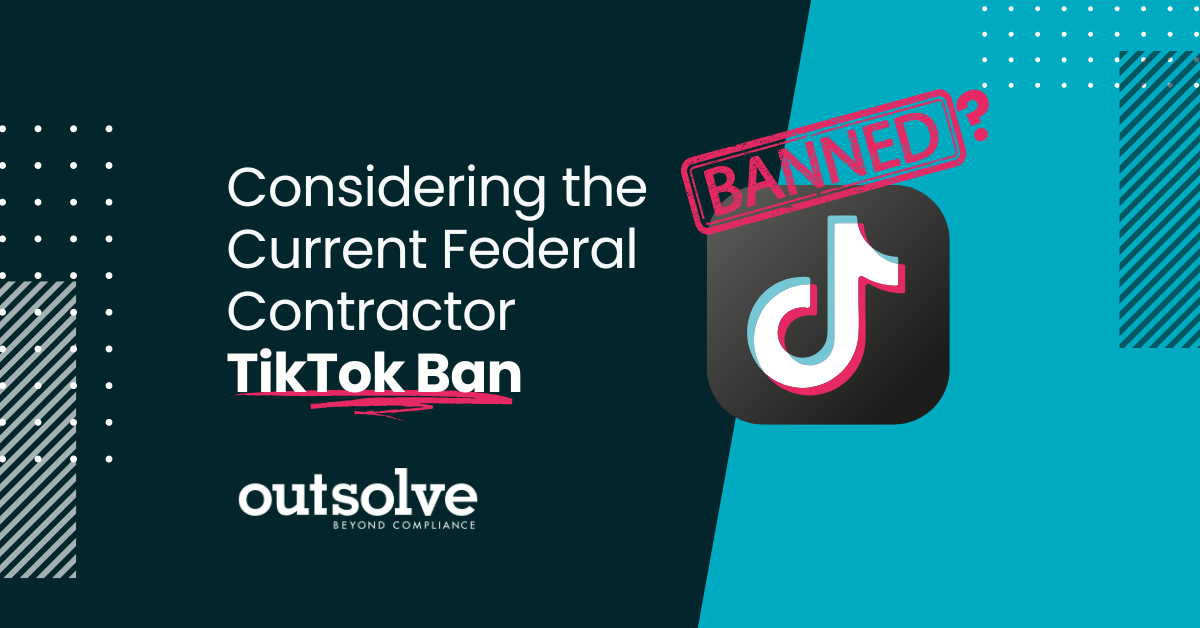1 min read
Considering the Current Federal Contractor TikTok Ban
 Scott Kushner
:
Jul 25, 2023 3:14:18 PM
Scott Kushner
:
Jul 25, 2023 3:14:18 PM

Since June, federal contractors have been banned from using TikTok and other ByteDance apps on employee devices. This includes personal cell phones, which may be used in work on government contracts (FAR 52.204-27).
While the ban does not apply to “incidental” work to a federal contract, the term “incidental” is not defined. The ban could be expanded to include existing contracts and indefinite-delivery contracts in addition to those since June 2, 2023.
Public comments are still being solicited through August 1, 2023, while the interim rule is in effect. The ban’s goal is to ensure data security. But it could become problematic when wage and hour, free speech, and other legal issues arise.
Contractors should evaluate the following matters to ensure compliance:
- Scrutinize contracts dated June 2, 2023, or later to determine applicability of the TikTok ban.
- Update personnel policies to reflect the TikTok ban and employees’ mobile devices.
- Consider implementing policies for written acknowledgement of the ban.
- Ask your technical support department to take practical steps to block TikTok on devices owned by the company.
- Discuss legal implications with corporate counsel including any risks in connection with personal employee devices used for work duties.
While the TikTok ban does not instruct contractors on specific steps for implementing the ban, it does expect contractors to leverage their existing technology and policies to enforce the ban. The ban requires all subcontractors to comply as well.
If your organization has questions regarding this ban, we encourage you to reach out to your consultant today to ensure compliance and reduce risk.
Scott has over twelve years of experience in the field of affirmative action planning and compliance. He develops annual affirmative action plans and updates for his nationwide customers, and he’s a subject expert on OFCCP enforcement matters and compliance requirements.
Weekly OutLook
Featured Posts

5 Key Compliance Items HR Can’t Afford to Ignore

HR Compliance Checklist: What Every HR Pro Needs to Know
Related Posts

What You Need to Know About the Rhode Island Pay Transparency Law
Pay transparency continues to gain traction at the state level, and Rhode Island is no exception. Let’s dive into the details of how this law works...

Legal Series: How to Balance Transparency with Confidentiality in Executive Compensation
This article is part of an ongoing legal series designed to provide insight and practical guidance on current and emerging workplace compliance...

Federal Contractor Data from 2016-2020 EEO-1 Consolidated Reports to Be Posted on OFCCP’s Website
After several years of litigation, the Office of Federal Contract Compliance Programs (OFCCP) will be posting federal contractor EEO-1 race/ethnicity...
